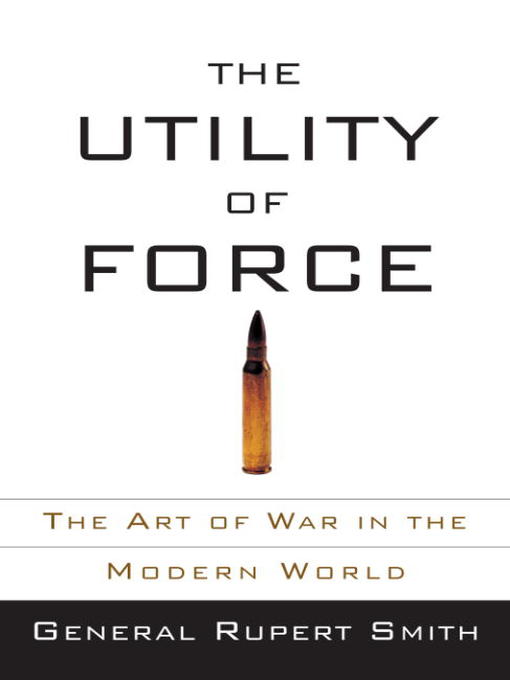
The Utility of Force
The Art of War in the Modern World
- اطلاعات
- نقد و بررسی
- دیدگاه کاربران
نقد و بررسی

February 15, 2007
This book, by a retired general and 40-year veteran of the British army, is an intelligent examination of the theory of modern warfare. Smith distinguishes the utility of force from the morality of force, focusing exclusively on the former. He convincingly argues that a paradigm shift in warfare occurred with the end of the Cold War in 1991 and that the inability of Western military forces to achieve political goals successfully since that time resulted from a failure to adapt to this new paradigm; said forces are still seeking to fight traditional wars between states in search of a return to the status quo. Smith's prose is clear, brisk, and compelling; suitable for any adult reader with an interest in modern war or the history of military theory. He expertly avoids any semblance of partisanship, which makes this book an excellent choice for readers interested in a high-level analysis of warfare without political or moral rhetoric. This book is an excellent addition to public or academic libraries.Robert Perret, Univ. of Wyoming, Laramie
Copyright 2007 Library Journal, LLC Used with permission.

February 1, 2007
In his opening remarks, Smith provocatively states, "war no longer exists." Of course, he does not mean that mass organized violence has ended; rather, he refers to the end of large-scale industrialized warfare characterized by the use of massive tank columns supported by the application of intensive air power. Smith, who spent 40 years in the British army, including service in the first Gulf War, Bosnia, and Northern Ireland, maintains the development of nuclear weapons has essentially made such warfare obsolete. Current and especially future wars fought by Western powers are likely to be low-intensity conflicts, often waged against stateless opponents. Because it is not practical or even possible to win these struggles through the application of purely military force, Smith insists a revolution, or new paradigm, must occur in our conception of these struggles. As a start, we must understand the political context in which our adversaries act. Once identified, political objectives must always drive the military efforts, Smith insists, even at the expense of "sound" military strategy.(Reprinted with permission of Booklist, copyright 2007, American Library Association.)




دیدگاه کاربران